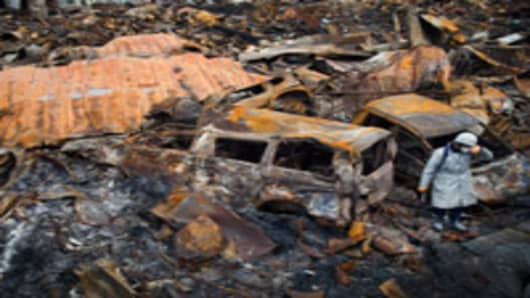The world economy is still very fragile and the impact of the Japanese earthquake and the nuclear crisis is distressing, Stephen Roach, non-executive chairman at Morgan Stanley, Asia, told CNBC in an interview.
Stock markets fell and US Treasury bonds rose Tuesday on renewed fears about the situation of the nuclear reactor in Japan.
"The macroeconomic impact I think is worrisome," Roach said.
The world economy has already undergone a series of shocks such as the euro zone debt crisis, the rise in oil prices and the Middle East turbulence, he added. "This is a confluence of worrisome developments."
Central banks are likely to keep injecting liquidity as, with rates close to zero, they have no other option to boost the economies but "the question we're all asking is how will all this end," he said.
"It's like an airplane that has just taken off… this is a fragile recovery right here and we had a lot of aftershocks one after the other," Roche said.
The Federal Reserve "would love" to stop to the second round of quantitative easing, but the economy is not strong enough, according to Roche.
Across the ocean, in Europe, there doesn't seem to be enough political will to impose the austerity needed to overcome the debt crisis, he added.
"I think there's going to be a significant shortfall of world economic growth from the very optimistic expectations that have been built into global markets," Roche said.


